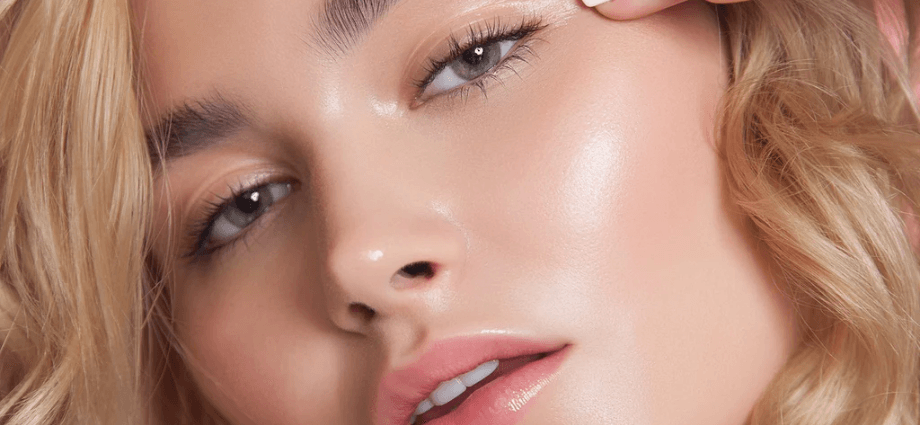Sleep is a fundamental part of maintaining overall health, but many people overlook its effects on skin health. While most of us understand that sleep helps us feel better and recharges our energy, it also plays a crucial role in keeping our skin looking youthful, healthy, and vibrant. Poor sleep can lead to visible signs of aging, acne, dryness, and other skin issues. In contrast, a good night’s rest supports skin regeneration, hydration, and protection from environmental damage. This article explores the surprising connection between sleep and skin health and provides tips on how to improve your sleep for healthier skin.
Benefits of Quality Sleep for Skin
Getting enough quality sleep is one of the best things you can do for your skin. It’s not just about feeling rested—it’s about giving your skin the chance to repair, regenerate, and protect itself. Let’s look at the key benefits of sleep for your skin health.
Enhanced Glow and Texture

Good sleep leads to improved skin texture and appearance. When you sleep, your skin produces new cells, and old, dead skin cells are shed. This process promotes a more radiant and even complexion. Additionally, sleep boosts hydration, helping your skin look plump and refreshed.
- Sleep encourages new skin cell production, improving texture.
- Your skin becomes more hydrated and glowing with consistent rest.
- Increased cell turnover helps brighten dull skin.
Adequate sleep supports your skin’s ability to stay hydrated and healthy, promoting a radiant complexion. Inconsistent or poor sleep can prevent this process, leaving your skin looking tired and lackluster.
Boosted Immunity for Skin Protection
Sleep is essential for a strong immune system, which helps protect your skin from bacteria, viruses, and environmental stressors. While you sleep, your immune system strengthens, allowing your body to repair and protect the skin more effectively. With a strong immune system, your skin is better equipped to fight off infections and prevent irritation.
- Sleep strengthens the immune system, boosting skin protection.
- A stronger immune system fights off infections and skin irritants.
- Well-rested skin is less prone to flare-ups and breakouts.
Adequate sleep ensures that your skin is better protected from harmful elements, reducing the risk of infections, acne, and irritation.
Slower Aging Process
Sleep is one of the most important factors in slowing the visible signs of aging. When you sleep, growth hormones stimulate the production of collagen and elastin, proteins that keep your skin firm and youthful. Adequate sleep helps prevent sagging, wrinkles, and fine lines, allowing your skin to maintain its youthful appearance for longer.
- Sleep supports collagen production, reducing fine lines and sagging.
- Growth hormones released during sleep help maintain skin’s firmness.
- Sleep aids in preventing early signs of aging.
By prioritizing sleep, you give your skin the best chance to fight the effects of aging. This, in turn, helps you maintain a youthful, glowing complexion as you age.
Tips for Improving Sleep for Better Skin Health
Now that we understand the powerful link between sleep and skin health, here are some practical tips for improving the quality of your sleep. Implementing these strategies can enhance your skin’s health and give you the restorative rest you need.
Create a Sleep-Friendly Environment
Your environment plays a significant role in how well you sleep. To improve the quality of your rest, make sure your bedroom is conducive to sleep. Ensure it’s dark, quiet, and cool. A comfortable mattress and pillows can also support your sleep posture and prevent discomfort. Additionally, use breathable bedding materials, such as cotton or linen, to prevent overheating and irritation.
- Keep your bedroom cool, dark, and quiet for optimal sleep.
- Choose a comfortable mattress and pillows for restful sleep.
- Use breathable fabrics to keep skin irritation at bay.
Creating an ideal sleep environment can help ensure that you get deep, uninterrupted sleep, leading to healthier, glowing skin.
Develop a Relaxing Bedtime Routine

A relaxing bedtime routine helps signal to your body that it’s time to wind down and prepare for sleep. Consider activities like reading, taking a warm bath, or following a calming skincare routine. Avoid using electronic devices or screens at least an hour before bed, as the blue light emitted can interfere with your circadian rhythm.
- Engage in calming activities before bed, such as reading or skincare.
- Avoid screens to reduce blue light exposure and promote restful sleep.
- Consider practicing relaxation techniques like meditation.
By incorporating a calming pre-sleep ritual, you can create a routine that helps you fall asleep more easily and wake up feeling refreshed.
Maintain a Consistent Sleep Schedule
One of the most effective ways to improve sleep quality is to maintain a consistent sleep schedule. Go to bed and wake up at the same time every day, even on weekends. This helps regulate your body’s internal clock, making it easier to fall asleep and wake up naturally. A consistent sleep schedule also helps improve skin regeneration and overall health.
- Stick to a consistent bedtime and wake-up time every day.
- Regulate your circadian rhythm for better sleep quality.
- Consistent sleep promotes healthier skin and overall well-being.
Maintaining a regular sleep routine helps your body understand when it’s time to rest, leading to more consistent and restorative sleep.
Addressing Common Myths About Sleep and Skin
There are many myths about the connection between sleep and skin health. Let’s take a closer look at some of the most common misconceptions.
Myth: Beauty Sleep is a Myth
Many people believe that the term “beauty sleep” is just a marketing gimmick, but it’s actually grounded in science. During deep sleep, the body produces growth hormones and stimulates collagen production. This leads to healthier, more youthful skin. Beauty sleep is more than just a catchy phrase—it’s an essential part of maintaining your skin’s health.
- “Beauty sleep” is supported by scientific evidence of skin regeneration.
- Growth hormones during sleep help maintain youthful skin.
- Sleep contributes to collagen production and tissue repair.
By getting adequate sleep, you give your skin the best chance to repair and regenerate, leading to a more youthful appearance.
Myth: You Can Catch Up on Sleep
While it may seem tempting to “catch up” on sleep during the weekend, it doesn’t fully reverse the negative effects of sleep deprivation. Consistent, restorative sleep is key to maintaining skin health. Sleep debt can lead to long-term damage, and trying to catch up on sleep only provides temporary relief.
- Sleep debt cannot be completely fixed by catching up on sleep.
- Consistent, quality sleep is necessary for long-term skin health.
- Chronic sleep deprivation leads to irreversible skin damage.
Prioritize consistent, restorative sleep to support both your overall health and your skin’s appearance.
Conclusion
Sleep is a vital component of healthy skin. When you get the proper amount of rest, your skin has the chance to regenerate, repair, and protect itself. Sleep enhances hydration, reduces inflammation, and slows the aging process. By creating a sleep-friendly environment, developing a calming bedtime routine, and maintaining a consistent sleep schedule, you can significantly improve your skin’s health. With a few simple changes, you can enjoy the long-term benefits of a well-rested, glowing complexion.
